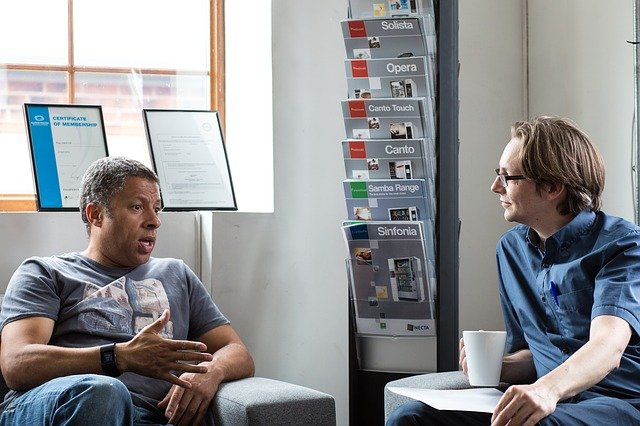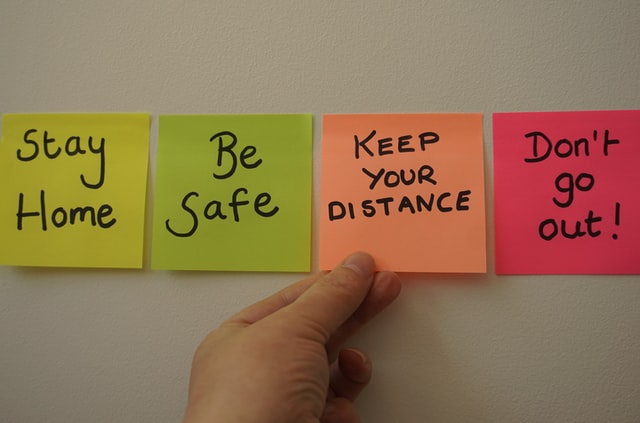Why is that person pretending to be someone they’re not?
How can I have someone feel comfortable enough to be themselves?
When a person hides who they really are or pretends to be someone they’re not, most times we describe them as “Two-Faced.” It means that they’re hiding their authentic selves and what they really think. It’s not a very positive term to use.
In this post, we will present the 5 scenarios of why people may act in opposition to what they really feel.
Contents
5 Cases of Why People Act Two-Faced

There is no definitive way to determine whether or not a person is acting two-faced. We’ll take a look at a few cases and why people feel the need to keep a front and act separate from how they’re really feeling.
CASE 1: People-Pleasing to Gain Position

There are people that try and please others to gain desired outcomes.
At some point as kids, we all tried hard to please our parents to gain affection or have them buy a toy we wanted. This may still prevail in our actions today when we try to please someone we like to get their attention.
With this kind of situation, a person’s real personality will come out only when they reach their goal. This is why we often hear stories of people who change after they’re “officially together.”
CASE 2: Not Ready to Show Their True Selves

Most people act two-faced when they don’t want others to see who they really are. When we join new communities, we keep our thoughts to ourselves while we try to figure out the social dynamics. No one wants to show how weird they are from the start.
This a natural self-defense reaction we all have. In this case, time will allow the person to show their real authentic selves.
CASE 3: Approaching Things Very Carefully

It’s not always safe to share everything you know. Sometimes, extra information can cause trouble. A person can be acting like someone they’re not to mitigate the risk of getting too involved.
In this case, their careful personality is causing them to act as if they’re two-faced, so it may be hard to draw out their real personalities. If they deem you as “trustworthy” or “a person that’s capable of objective perspectives,” they may naturally come out of their shell to talk to you.
CASE 4: The Desire for People To Like Them

Sometimes we act a certain way so that other people will like us.
If someone is an introvert but is afraid of loneliness, they may act as if they’re an extrovert to feel accepted. In this kind of scenario, a person may feel “fake” because they are trying to be someone they are not.
CASE 5: Past Experiences of Social Difficulties

Some people have past trauma from painful social incidents and this keeps them away from being honest about their feelings. It could be that they’ve opened up to someone before but were betrayed, or their authentic personalities being rejected in the past.
As much as it’s hard to trust others, no one wants to keep up their guard all the time, so these people may open up to you if you sincerely approach them.
How to Build a Relationship With a Two-Faced Person

It makes a difference to know whether a person is consciously or unconsciously acting out. If you want them to be real with you, try communicating in the following ways:
・Consider a Soft and Long-Lasting Dialogue

With the 5 cases above, there seems to be a way to open up people when we invest in a long-term relationship. However, going in too forcefully with long hours of communication will make them nervous.
Be aware that it won’t be easy to break a person’s shell. Rather than going for an hour’s lunch, try a 3-minute friendly greeting every morning. A gradual approach will make it easier for a person to open up.
・Don’t Force Communication

This may somewhat contradict the above point on being active in your approach, but excessive communication can feel alarming for some. It’s a great idea to try and get to know someone, but make sure to keep a distance that’s safe enough for the other person to feel open.
・Show Your Own Vulnerabilities

If the person seems to act because they’re trying to hide their weakness, you can try showing your own vulnerabilities.
In psychology, there’s a term called “Emotional Empathy.” Psychologist and journalist, Daniel Goleman, describes Emotional Empathy as, “when you feel physically along with the other person, as though their emotions were contagious.” When people understand that others have vulnerabilities too, it becomes easier for them to show their own.
Once you establish that it’s okay to be your authentic self, the necessity to keep a front dissolves and allows for a person to be real.
If attempts of communication fail and there’s a need for further assistance, an AI counseling app can help without any restrictions on time schedule or location. It’s an affordable alternative counseling method with a free trial period. Give it a try!
→[blog_link_en url=”https://apps.apple.com/app/id1508095250″ title=”SELF MIND”
Build Relationships Slowly For Them to Open Up

There are many reasons why a person might need to act two-faced and it won’t be easy to break their shell. It will take time. Approach them gently as you would approach a feral cat and keep a healthy distance as you do so. Eventually, you’ll reach a place where you can see each other eye to eye and communicate at a closer level.
References:
SAWADA, M. (2014). Balance Between Private and Public Selves : The Annual Report of Educational Psychology in Japan, 53(0), 37–49. https://doi.org/10.5926/arepj.53.37
Tobari, M. (2000). Empathy as a multidimensional construct : A review of research on empathy. The Japanese Journal of Personality, 9(1), 36–51. https://doi.org/10.2132/jjpjspp.9.1_36



